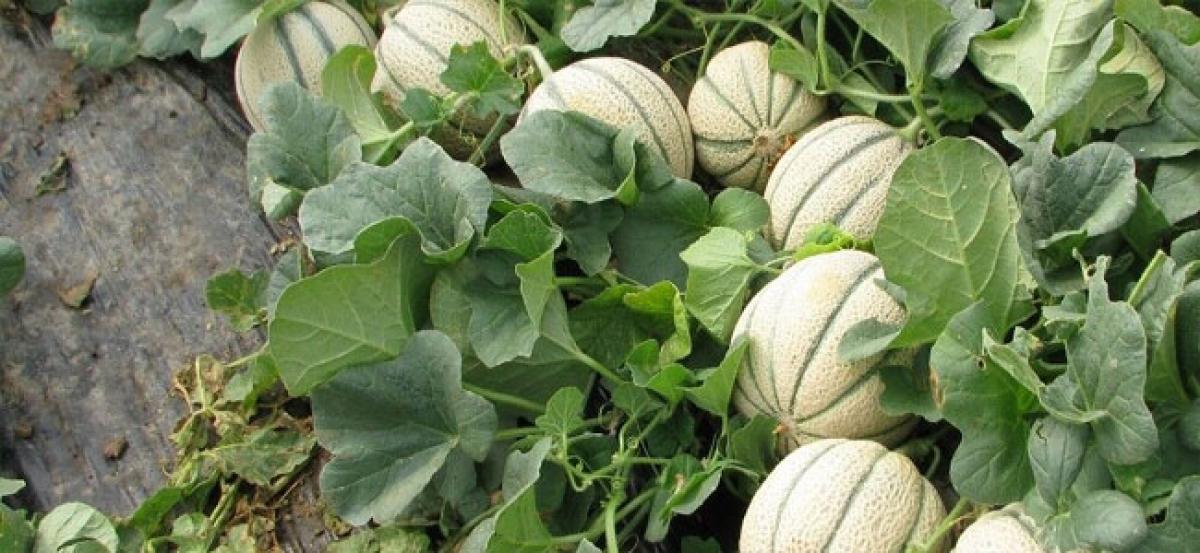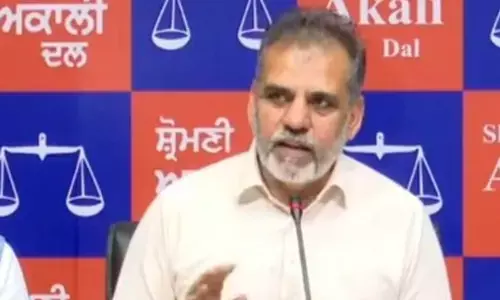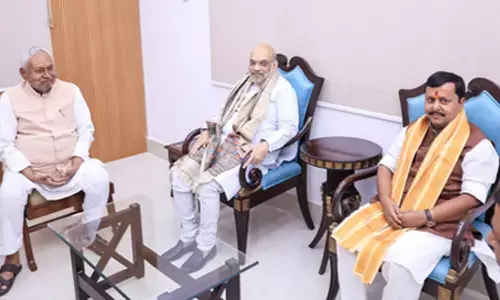Drip irrigation benefits distress farmer

B Vale Naik holding one hectare of land in Devendrapuram hamlet in Kalyandurg mandal was on the losing side as he depended much on rains to cultivate groundnut crop as his bore-well was giving poor water yields. He could not get sufficient returns on his groundnut crop.
Kalyanadurg (Anantapur): B Vale Naik holding one hectare of land in Devendrapuram hamlet in Kalyandurg mandal was on the losing side as he depended much on rains to cultivate groundnut crop as his bore-well was giving poor water yields. He could not get sufficient returns on his groundnut crop.
Highlights:
- Farmer B Vale Naik raised muskmelon crop with drip in one hectare and earned nearly Rs 3 lakh
- Says drip irrigation was an eye opener to him
Leave alone profits, he could not get back at least investment on his groundnut and red gram cultivation. With a family to care for and children to be educated, he was looking for miracles to happen when APMIP personnel visited their hamlet and educated them on adopting drip irrigation and on ways and means of preserving scarce water resources.
Naik revealed that until then the farmers had a notion that abundance of water is required for crop and the more the crops are watered the more yields would grow. He opted for drip irrigation and he decided to try it, to come out of his financial distress. He installed drip irrigation by approaching the APMIP and availed 90 per cent subsidy for drip installation. All he had to contribute was just Rs 10,000 and 90 per cent subsidy was extended by the APMIP.
Prior to the installation of drip irrigation, he did not have enough water in his bore-well. With limited water at his disposal, he was unsuccessful in his groundnut cultivation. He could not get back the production cost of groundnut and his financial condition was very weak. Even, Naik was unable to provide minimum education to his children.
APMIP organised awareness campaigns and motivated the farmer to go for drip installation with assistance from the APMIP. After installation of the drip last year, Naik said that he took up cultivation of Muskmelon crop and got net returns of nearly Rs 3 lakh on his one-hectare land with the limited water available with him.
This amazing amount of money he says he had never earned anytime in the past. He extended cultivation area to two more acres with the same borewell and is now planning to cultivate other vegetables and melons and short duration fruit crops like Banana and Papaya.
In the past, Naik stated that he used to ponder over his wasted crop lands and weep over his helplessness but the drip irrigation was an eye opener and surely the little drops of water did make an ocean of difference to him, his family and people of his hamlet.
APMIP Project Director Venkateswarlu told The Hans India that due to a concerted awareness campaign unleashed by his department on the judicious use of limited water sources and by dispelling false notions that excessive use of water only would guarantee higher yields, the farmers were convinced that the scarce water resources should be used scientifically on the lines of Israel which is far ahead of others in water conservation measures.
Today, a drip revolution is sweeping the district and no wonder the district stands first in application of drip irrigation. He said that the action plan was proposed for drip irrigation for the new fiscal 2017-18 is 1,332.50 hectares which will be brought under drip, he added.
Chief Minister N Chandrababu Naidu also announced at his public meeting in the district on Friday that he would invest Rs 900 crore on expansion of drip irrigation and bringing every acre of land in the district under drip irrigation as part of the mission to conserve every drop of water.
It is said that little drops of water make an ocean but application of drip irrigation has proved that little drops of water can make an ocean of difference, especially in a district which is haunted with series of droughts and climatic conditions naturally hostile to the people for over 100 years. An erratic monsoon every year had turned the farmers towards drip irrigation which helped in optimum utilization of scarce water sources and in scientific supply of water to crops.
By Ravi Prasad Benjamin










